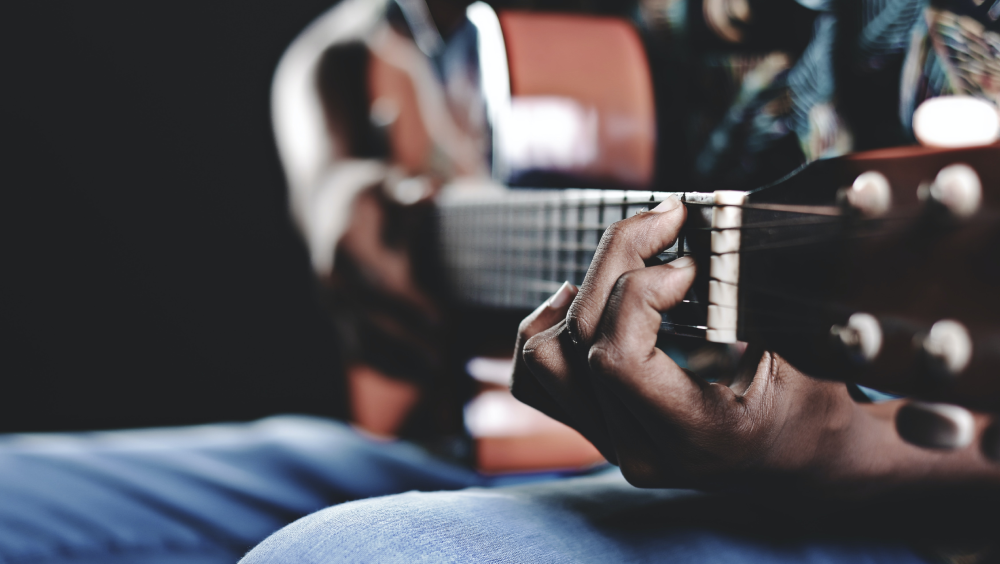Richard has spent the last 27 years plugging music to BBC Radio 1, 2 and 6 Music, plus Capital Radio, Kiss and Xfm. Through his work he’s broken Top 40 artists including Damien Rice, Scouting For Girls and Rick Astley.
Unlike print and online media - where it’s easy to gather contact details for those in charge - radio stations can appear like a fortress from the outside, their playlists chosen by elusive programmers and producers.
Here, Richard offers insight into the world of radio, shedding light on the way playlists work and reveals the people who make all the important decisions.
Is radio still crucial to artists?
Even to this day, for all the internet’s whiz, bangs and cleverness, radio still matters. Chris Price, who used to be the number two at Radio 1, told me the other day that 45 percent of new music is still discovered on the radio. It’s the reality. Spotify - which is supposed to be the second coming – only has four percent of the market.
Unlike print and online media - where it’s easy to gather contact details for those in charge - radio stations can appear like a fortress from the outside, their playlists chosen by elusive programmers and producers.
Here, Richard offers insight into the world of radio, shedding light on the way playlists work and reveals the people who make all the important decisions.
Is radio still crucial to artists?
Even to this day, for all the internet’s whiz, bangs and cleverness, radio still matters. Chris Price, who used to be the number two at Radio 1, told me the other day that 45 percent of new music is still discovered on the radio. It’s the reality. Spotify - which is supposed to be the second coming – only has four percent of the market.
Playlists vary so much from station to station. Radio 1 is still for me the most important station. Its playlist is split into five parts. There’s an A list, B list, C list, In New Music We Trust list and a BBC Introducing list. The BBC Introducing list highlights unsigned artists who are at the very start of their career. The In New Music We Trust list features artists that are probably onto their second EP – you won’t get more than six plays a week from that. The C list is for established artist rejoining the playlist process. The B list is split into two parts – B1 and B2 – B2 is a junior B list and you’ll get a maximum of 10 plays. The B1 list is practically an A list record, but not quite! The A list is what you think it is – you’ll get around 25 plays a week if you’re on there. But none of these lists will actually guarantee you any airplay – remember that.
What do stations base their playlist decisions on?
Well I know that I base mine on whether I can remember it in two plays flat. If I can’t remember the chorus and melody line, how am I going to convince radio to play it?
Each show and station has its own rules. Xfm will play quality music, end of. With Capital they will only play the records they really need to play. They don’t need to break anything. Capital is a very well-run business and the consequence of that is they are a money-making machine.
Radio 1 is the holy grail but Radio 2 is the most fun to deal with. If they listen to the record and they like it, they’ll put it on air. They don’t give a shit about how big the artist is, how well known the label is, what the agenda is - they don’t care as long as it’s a great track.
What outside factors do they take note of?
Using Radio 1 as a measure – 27 years ago you could tell them a record was good and they’d play it. Now they want to see the stats before the play the music, and that’s everything from Facebook to YouTube and everything in between.
Radio 1 is the holy grail but Radio 2 is the most fun to deal with. If they listen to the record and they like it, they’ll put it on air. They don’t give a shit about how big the artist is, how well known the label is, what the agenda is - they don’t care as long as it’s a great track.
What outside factors do they take note of?
Using Radio 1 as a measure – 27 years ago you could tell them a record was good and they’d play it. Now they want to see the stats before the play the music, and that’s everything from Facebook to YouTube and everything in between.
My job is to educate the decision-makers about your music. Their job is to be spoon fed by me. All I am is the millimetre of copper between the record industry and the holy grail of radio.
What are the lead times for radio?
I would want four months to plug your single but I’ll know within six or seven weeks if you’ve got a real shot. If radio isn’t playing you, you’ve got to budget your marketing accordingly. If you are getting radio support then you’ll need to budget up. No record goes eight weeks upfront on Radio 1 anymore – you’re lucky to get three weeks – which I think is very dangerous for artists and labels.
How hard is it to get on radio stations?
Often their default answer is no until you persuade them otherwise. These days, everything has to go through a music team before it goes on air.




